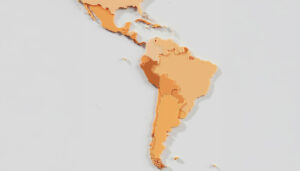
Por Mariana López
January 15, 2020
Contxto – Argentina’s startup ecosystem is already highly developed in various industries. There’s Mercado Libre in e-commerce and Ualá in fintech.
But, the country is also becoming a major player in biotechnology. One well-established example of a success story is Rosario-based Bioceres which hit the New York Stock Exchange recently.
And, in 2018, the government established its Biotechnology Law. Through it, Buenos Aires hopes to draw investments, increase exportations, as well as create job openings in fields related to biotech.
Simply put, Argentina is a place primed for biotech startups and here they are.

Biotechnology plants are HUGE. This consequently leads to various processes in bio-engineering to be highly centralized. But Stämm is changing this reality with its desk-sized bioreactor. The development of its first prototype is underway to allow field implementation.
Like Stämm, Zev Biotech wants to bring more inclusion via biotech to the world. Albeit its approach is through a platform that allows for molecular diagnosis. Such a process is usually inaccessible to healthcare centers in vulnerable communities. But Zev Biotech knows a timely diagnosis via genome analysis is needed everywhere.
Meat consumption charges a heavy toll on our environment. However, as humans, we still need protein in our diets. As a result, the solution for a greener and healthier future is in plant-based proteins. Something Tomorrow Foods is set on developing. And as a vegetarian, I’m looking forward to learning more and hopefully someday tasting their creation.
Farm fish are extremely vulnerable to bacteria. This typically leaves the pisciculture industry with two alternatives: using large amounts of antibiotics or vaccinating fish. One option is bad for the fish’s health (and ours) and the other is just plain impractical. What Feedvax offers is an oral vaccine so our fishy friends are taken care of.
Caspr, no, not the friendly ghost, but rather the biotech startup uses CRISPR tech for molecular diagnostics. CRISPR is basically gene-editing technology. In Caspr’s case, it’s harnessed into a portable kit to identify particular DNA sequences. As a result, disease detection is easier and no huge, sophisticated laboratory is needed.
Many are aware that food dyes contain chemicals that can prove harmful to our health. However, big food industries aren’t saying or doing much in that regard. That’s where Michroma comes in. This startup is bioengineering natural food dyes that comply with the food industry’s and consumer’s coloring expectations. And the red cherry on top? It’s healthier.
Clinical trials with human subjects have their own set of risks. But it’s a process all pharmaceutical and some food-related companies must complete. To mitigate that risk, and identify the potential effects a substance may have on a person prior to getting them involved, WeBio provides bioprinting services. Bioprinting consists of 3D printing material that is in likeness to real human tissue.
This startup from Buenos Aires helps animals and the environment through its cruelty-free meat. Their product is created by drawing a non-invasive stem cell sample from an animal. Then, Cell Farm nurtures that sample in a controlled environment so the cells in it reproduce as they would on the animal. As a result, the tissue develops into meat without having harmed a single cow.
Living organisms have an amazing ability to adapt. Although this survival mechanism doesn’t always work in favor of humans. As people increasingly consume antibiotics, bacteria grow more resistant to their drugs. Alternatives are needed and Alytix is one. This startup works with bacteriophage technology which consists of naturally occurring viruses that help fight infections. That’s “good” viruses helping keep bad bacteria off in a microscopic battle royale.
It’s all in the genes and Bitgenia knows it. Through genomics analysis, this startup can identify potential genetic diseases, help patients better understand their reproductive health, as well as determine if they’re allergic to certain drugs. There is a wealth of information in DNA and Bitgenia wants to help patients discover it.
This startup has created a lot of buzz among the media lately. And that’s because Beeflow is helping nurture bees that are stronger and better-fit to pollinate, thus improving crop yields. These “super bees” are developed through a highly nutritional formula created by Beeflow. Not only are these charming little insects made more resistant to cold weather, but they’re also trained to pollinate specific crops.
Bees aren’t the only super-organism we’ll be covering in this market map. Algae is a superfood from which algaebio+ has extracted Astaxanthin, a compound that provides multiple benefits for our eyesight, cardiovascular health, and joints, to name a few. This startup participated in Grid Exponential’s accelerator program for science and biotech-based startups. It’s also won a series of entrepreneurship contests in its native Argentina.
This startup works with biosensor technology in order to digitize and study molecular interactions. Consequently, Aplife‘s tech can be applied in various industries from pharmaceuticals, food, healthcare, among others. It’s currently receiving support from Grid Exponential and Argentina’s National Scientific and Technical Research Council (Conicet).
Unbeknownst to many, the viscosity of blood affects a person’s cardiovascular health significantly, much in the same way as blood pressure and cholesterol do. And those with “thicker” blood are more vulnerable to heart attacks. However, measuring viscosity is no simple task.
As a result, MZP Tecnología developed a low-cost device that can measure blood viscosity and thus offer a more accurate diagnosis. Through thick and thin, this startup is helping healthcare.
-ML

Por Yanin Alfaro
March 25, 2025

Por Alfie Pannell
January 8, 2025